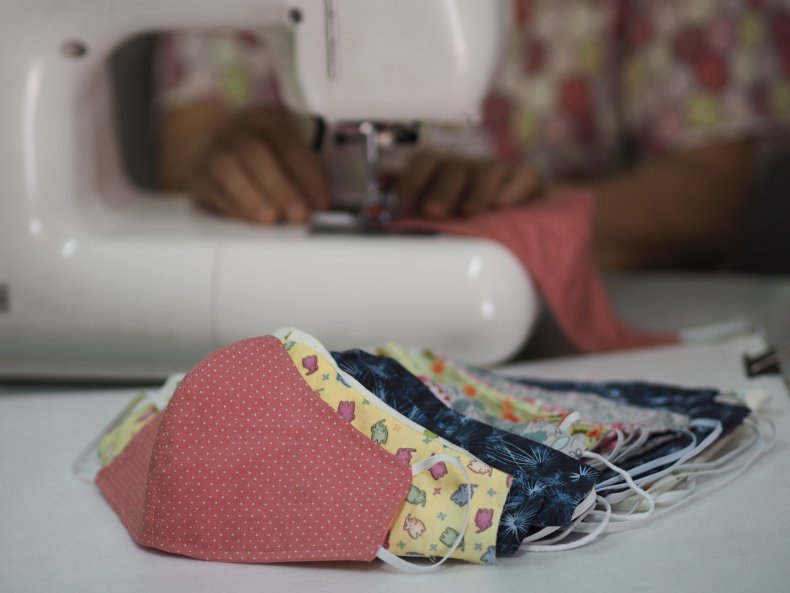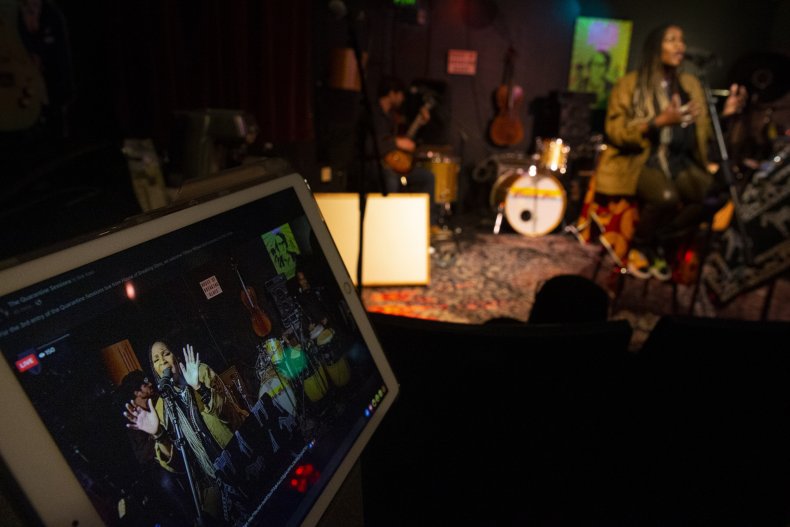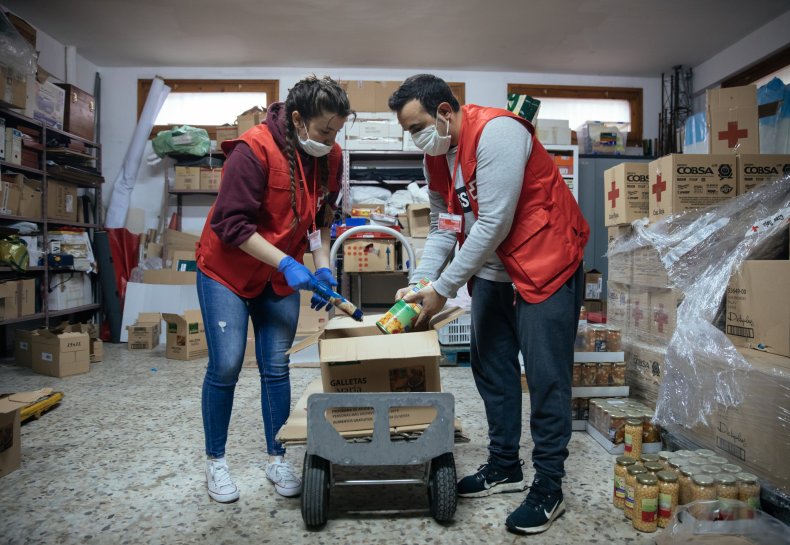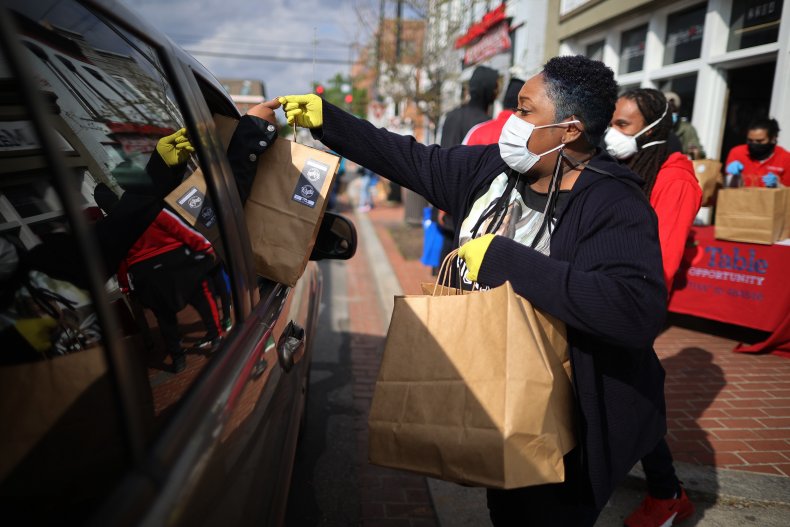We’re isolated, quarantined and socially distant. We’re following the best medical advice, and, even if we’re connecting with colleagues via Slack while working from home, we’re anxious and stressed.
We know what the doctors say: Left unchecked, stress can impact physical and emotional health. Which leaves us wondering, how can we avoid stress while juggling everything from work to homeschooling to meal prep? It’s simple according to Mister Rogers, who often quoted his mother as saying, “Look for the helpers. You will always find people who are helping.”
Maybe it’s part of our DNA. Maybe it’s a learned behavior to ensure our community survives. But you can find helpers, digital and IRL, doing great work and making a difference.
Making Masks
Masks are in short supply for hospitals, law enforcement, senior living communities and a host of other groups. New York, Minnesota, and Washington state each issued a call for more than a million masks, mobilizing those with a sewing machine and a servant’s heart to step up to the challenge. Dozens of mask patterns, tested by hospital personnel, have been shared on social media and on volunteer-created websites such as Make Masks. Brands are also recruiting sewing volunteers. For example, Tieks created Operation #SewTOGETHER and offers $50 gift cards to everyone who makes 50+ masks!
 Dozens of mask patterns, tested by hospital personnel, have been shared on social media and on volunteer-created websites such as Make Masks. Getty
Dozens of mask patterns, tested by hospital personnel, have been shared on social media and on volunteer-created websites such as Make Masks. GettyVentilators and PPE
Personal Protection Equipment, PPE for short, and ventilators pose a challenge for the volunteer movement. But a can-do spirit, social media collaboration and 3-D printers are proving we’re up to the task. One of the most productive forums is the Open Source COVID19 Medical Supplies group on Facebook. With 62,000+ members, this global group shares pattern files, ideas, feedback and innovative solutions. Meanwhile, #GetUsPPE is a grassroots group of people who created a website to track the need for (and volunteers with) supplies.
Home Safari
Zoos have to think outside the box in order to maintain funding during times when no one can visit. Cincinnati Zoo and Botanical Garden runs a daily 15-20-minute live stream animal encounter. Zookeepers offer spontaneous commentary about the animals and answer questions submitted on Facebook, where the program streams. Children are invited to visit the website to complete a daily lesson that reinforces what they learned during the stream. From a meerkat mob to a pair of unlikely BFFs (a mutt and a cheetah), this delightful series is also a low-key fundraiser for the zoo.
 Musician and songwriter Tiffany Wilson performs during The Quarantine Sessions at the House of Breaking Glass recording studio on March 29, 2020 in Shoreline, Washington. The Quarantine Sessions are a way for local musicians to perform online livestream concerts in high quality audio to a wide audience. Donations and ticket sales go towards supporting the musicians and production costs. Photo by Karen Ducey/Getty
Musician and songwriter Tiffany Wilson performs during The Quarantine Sessions at the House of Breaking Glass recording studio on March 29, 2020 in Shoreline, Washington. The Quarantine Sessions are a way for local musicians to perform online livestream concerts in high quality audio to a wide audience. Donations and ticket sales go towards supporting the musicians and production costs. Photo by Karen Ducey/GettyMaking Music
Saying “we’re all in this together,” Garth Brooks and Trisha Yearwood broke the internet on March 23rd when they entertained more than 3.4 millions with a Facebook Live concert from their home. But the two country stars are not the only musicians giving home-bound audiences a concert. Billboard is hosting Live At-Home Concert sessions with artists like Kash Doll. Classical music is available from world-class orchestras on Facebook, YouTube, and their websites. Solo musicians stream a classical concert from their home to yours on Living Room Live. Meanwhile, Together at Home, supported by Global Citizen, is doing the same with Coldplay and John Legend.
Digital Travel
With travel a no-go, you can indulge in virtual tours of iconic national parks, the surface of Mars and museums of every stripe. Google partnered with NASA in 2017 to create the Access Mars website, where anyone with a digital device or VR/AR headset can wander the red planet’s surface. If your kids are studying history, check out the virtual resources from the National Women’s History Museum. Like other major museums, the National Museum of Natural History offers an online virtual tour of everything from the grounds to all of its exhibits.
 Spanish Red Cross volunteers work at the food bank helping people affected by the Covid-19 crisis on April 1, 2020 in Huesca, Spain. Spain ordered all non-essential workers to stay home for two weeks to help slow the Coronavirus (COVID-19) pandemic, which has killed more than 9,000 people in the country. Photo by Alvaro Calvo/Getty
Spanish Red Cross volunteers work at the food bank helping people affected by the Covid-19 crisis on April 1, 2020 in Huesca, Spain. Spain ordered all non-essential workers to stay home for two weeks to help slow the Coronavirus (COVID-19) pandemic, which has killed more than 9,000 people in the country. Photo by Alvaro Calvo/GettyRecognizing Heroes
From public applause to a viral photo of volunteer nurses headed to NYC, acts recognizing and acknowledging caregivers are among the classiest silver linings we’ve seen. Red Cross and Red Crescent volunteers are stepping up to provide 24/7 assistance around the world. On the local level, a group of citizens in Louisville, Kentucky created Louisville Covid-19 Match, a website designed to connect someone who is at high-risk with a person who has a low risk for the virus. Once a match is made, the two individuals take ownership of the virtual relationship, determining how best to assist one another. On the West Coast, the Pacific Palisades Residents Association has created a Look for the Helpers program along similar lines.
From Seattle to Boston and Minneapolis to Houston, people are sidestepping their routines and reaching out to one another. If you can’t see a silver lining, take a minute to reach out to an old friend. Call or text them, ask how they’re doing, and just listen. When you do, there’ll be one more silver lining for our list.
Kathleen Gossman is a Project Leader for EnVeritas Group, providing strategic content solutions to clients in fitness, hospitality and higher education. She’s also a prolific maker of masks.



















